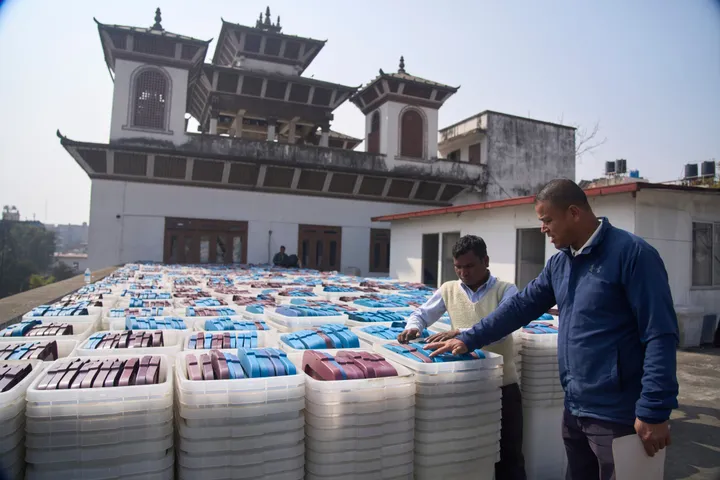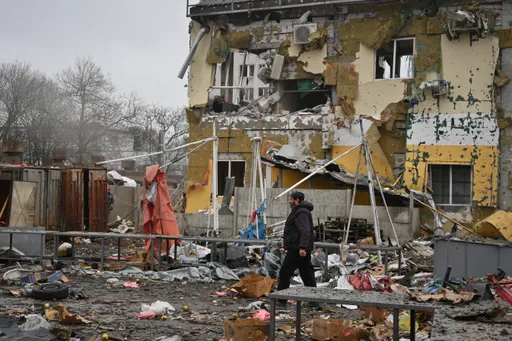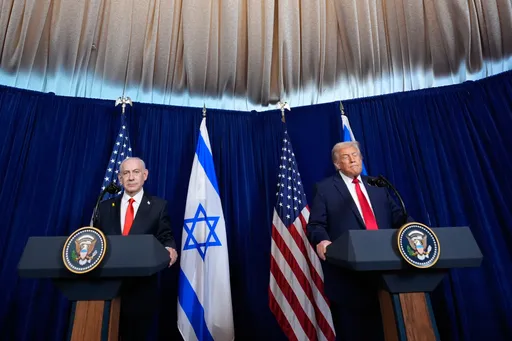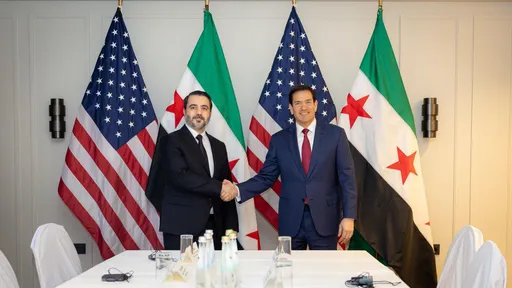The UN Mideast envoy warned Thursday that Israeli moves to annex parts of the West Bank and accelerate settlement expansion, combined with the coronavirus pandemic’s devastating impact, could ignite Israeli-Palestinian conflict and “destroy any hope of peace.”
Nickolay Mladenov told the UN Security Council that annexation would also “constitute a serious violation of international law, deal a devastating blow to the two-state solution, close the door to a renewal of negotiations, and threaten efforts to advance regional peace.”
He urged Israelis and Palestinians to support UN Secretary-General Antonio Guterres’ call for a global cease-fire to all conflicts to tackle the pandemic.
Mladenov, who is the UN special coordinator for the Middle East peace process, expressed hope that opportunities for cooperation between Israel and the Palestinians as a result of the COVID-19 crisis “will not be undermined or destroyed if the political context between Israel and the Palestinian Authority deteriorates."
Riyad Mansour, the Palestinian UN ambassador, told the council that cooperation is already being undermined, blaming the threat of annexation.
Earlier this week, Israeli Prime Minister Benjamin Netanyahu and his main political rival, Benny Gantz, signed a governing coalition agreement that includes a clause to advance plans to annex parts of the West Bank, including Israeli settlements, starting July 1.
The Palestinians seek all of the West Bank and east Jerusalem — areas captured by Israel in the 1967 Mideast war — for an independent state and the removal of many of the more than 700,000 Israeli settlers from these areas.
The US rolled out its long-awaited Mideast peace plan in late January calling for a disjointed Palestinian state that would turn over key parts of the West Bank to Israel. It was immediately dismissed by the Palestinians.
US Secretary of State Mike Pompeo said Wednesday when asked about the annexation agreement in the Netanyahu-Gantz deal: “That’s an Israeli decision.”
Mansour said the US peace proposal and Israel’s decision to proceed with annexation “will destroy the two-state solution and entrench Israel’s military control over the Palestinian people and land.” He urged “deterrent action” be taken by the Security Council, General Assembly, parliaments, judicial bodies and other organizations to salvage prospects for peace.
Earlier Thursday, the European Union warned the incoming Israeli government that annexing parts of the occupied West Bank “would constitute a serious violation of international law.”
France’s UN ambassador, Nicolas de Riviere, went further, saying annexation “would not pass unchallenged and shall not be overlooked in our relationship with Israel.”
Neither Israeli Ambassador Danny Danon nor acting US deputy ambassador Cherith Norman Chalet mentioned annexation in their briefings to the council, instead focusing on the fight against Covid-19 in Israel, the West Bank and Gaza.























